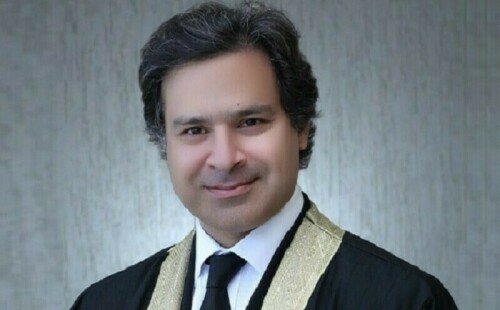 BAGHDAD, March 12: Iraq saw one of its bloodiest days for weeks as 80 people were killed on Sunday in bomb explosions and mortar attacks. Forty of the deaths occurred in Baghdad’s Sadr City – the slum bastion of radical Shia leader Moqtada Sadr when two car bombs ripped through one market and a third blast, probably also a car bomb, struck another. Mortar bombs were also fired into the district.
BAGHDAD, March 12: Iraq saw one of its bloodiest days for weeks as 80 people were killed on Sunday in bomb explosions and mortar attacks. Forty of the deaths occurred in Baghdad’s Sadr City – the slum bastion of radical Shia leader Moqtada Sadr when two car bombs ripped through one market and a third blast, probably also a car bomb, struck another. Mortar bombs were also fired into the district.
“People were torn to pieces,” a witness said at the scene.
Earlier during the day, 10 people were killed in a series of mortar blasts and roadside bombings. Altogether, from body counts during the day at least 80 people were killed.
There were chaotic scenes at a hospital in Sadr City where many of the casualties were taken. One woman wept and a man slapped his head in grief. Some of the wounded were lying on the floor.
Violence after the bombing of a shrine on Feb 22 has pushed Iraq to the brink of civil war and officials have warned a new incident could push the country into all-out conflict.
Sadr City had been hitherto relatively free of violence, possibly due to Moqtada Sadr’s efforts to cooperate with Sunnis in fighting US occupation.
US MEDIATION: The US ambassador to Iraq, Zalmay Khalilzad, tried to mediate in talks among Iraqi leaders struggling to break a deadlock over the formation of a national unity government.
“There was a lot of flexibility on all sides,” he said afterwards, stressing a deal was urgent. Pressed to say how long it might take, he said: “It’s going to take a bit of time.”
Mr Khalilzad has said a similar incident to the Feb 22 Samarra mosque bombing, which triggered sectarian bloodshed that killed hundreds, could spark a civil war and possibly ignite the entire Middle East.
The bombing plunged Iraq into its worst crisis since the occupation began in April 2003.
President George Bush hopes an inclusive government of Iraq’s Shias together with Sunnis and Kurds will foster stability and allow the United States to start bringing home some of its 130,000 troops.
Defying calls from Sunnis, Kurds and secular leaders, Prime Minister Ibrahim al Jaafari said he would not step down.
The ruling Shia United Alliance, by far the largest bloc in parliament, is resisting pressure to reconsider backing Mr Jaafari for a second term. But would-be partners are pressing the Alliance to drop him as the price for joining a coalition.—Reuters














































Dear visitor, the comments section is undergoing an overhaul and will return soon.